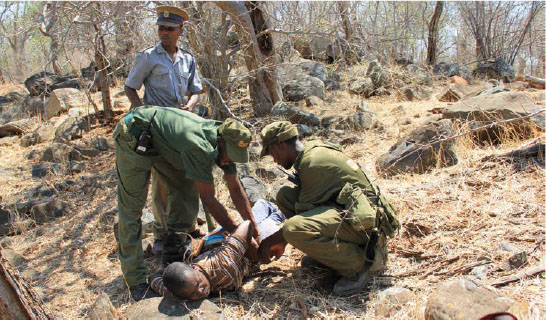
Even if authorities are successful in catching a poacher or wildlife trafficker, things may break down at the prosecution stage. AWF is organizing judicial sensitization workshops to ensure those across the criminal justice system understand how they can ensure known wildlife criminals don’t go free.
“HISTORICALLY, WILDLIFE CRIMES HAVE been treated like petty crimes, similar to being drunk and disorderly,” says Didi Wamukoya. “In Kenya, for example, until the Wildlife Act was passed in 2013, penalties for wildlife crime were typically non-custodial in nature and not very severe. A person convicted of a wildlife crime may have been ordered to do community service for a day.”
Wamukoya knows of what she speaks, having cut her teeth prosecuting wildlife crimes for Kenya Wildlife Service. Now, as AWF’s law enforcement manager, the attorney is working across the African continent to address this lenient outlook on wildlife crime.